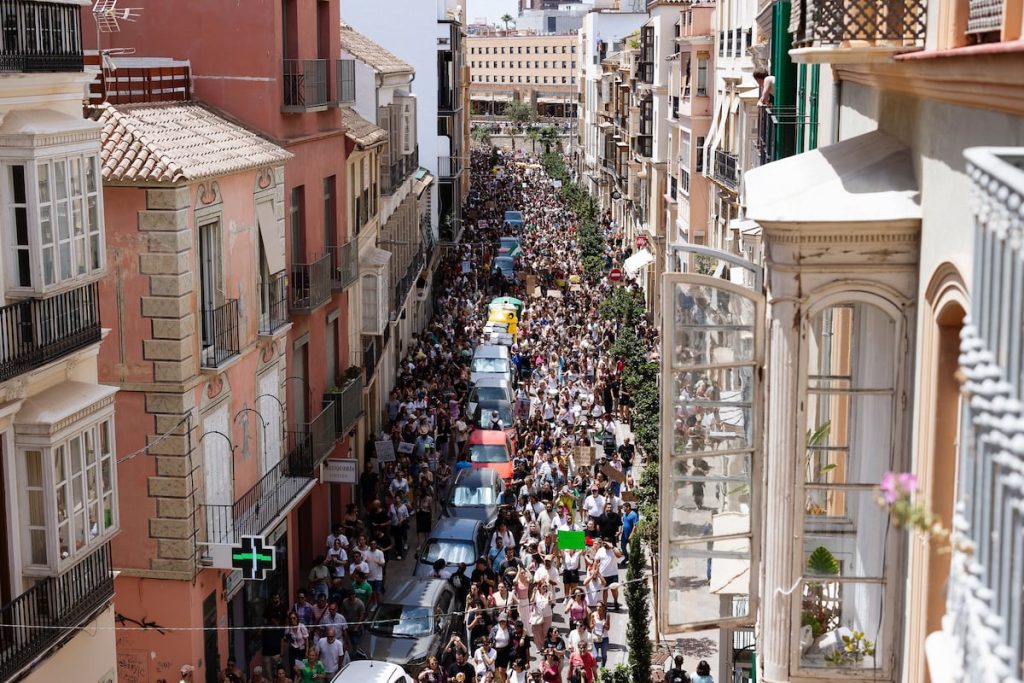Residents in cities like Sevilla, Spain have been protesting against overtourism since the spring. Fernando Peñuela, a 67-year-old resident of Sevilla, has been struggling with noise from a rooftop party in a tourist apartment building near his home. He is tired of the noise, the drunk tourists, the litter, and the crowded streets. Peñuela, who has lived in the neighborhood all his life, feels like a stranger in his own community due to the overwhelming presence of tourists. Despite the challenges, he refuses to leave because of his affordable rent and deep roots in the neighborhood.
Protests against overtourism have been taking place in cities across Spain, with the most significant ones occurring in the Canary Islands and the Balearic Islands. These protests have united people from various backgrounds who are concerned about issues such as rising rental prices, noise pollution, destruction of heritage, and the loss of community identity. David López, president of Sevilla se Muere, predicts that the protests will continue to grow in the coming months. The diversity of participants in these protests reflects the broad range of concerns related to overtourism in Spain.
In the Canary Islands, the movement against overtourism has gained momentum, with various organizations coming together to address issues such as unaffordable housing, poor working conditions, and environmental degradation. Associations in cities like Santa Cruz de Tenerife and Las Palmas de Gran Canaria have joined forces to demand a more sustainable and equitable tourism model. The platform Canarias se Agota was created to channel this diversity of voices and concerns, with a focus on protecting the natural and cultural heritage of the islands.
In regions like the Balearic Islands, groups like Menys Turisme Més Vida have mobilized against overtourism, bringing together environmentalists, housing advocates, labor unions, and neighborhood associations. Maribel Alcázar, head of the neighborhood federation in Palma, emphasizes the importance of collaboration among various groups to address the challenges posed by a tourism-centered economy. The movement in cities like Palma and Málaga reflects a growing realization that the current tourism model is eroding the social fabric and identity of local communities.
The protests in Spain have been driven by concerns about the lack of employment and housing opportunities for residents in tourist-saturated areas. People like Melu Méndez, a chambermaid in the Canary Islands, and Lidia Cruz, a teacher in Gran Canaria, express frustration with the rapid transformation of their neighborhoods due to tourism. They are part of a broader movement that seeks to challenge the dominance of the tourism industry and advocate for more sustainable and inclusive urban development. These protests highlight the need for a more holistic approach to addressing the impact of tourism on local communities.
As the protests against overtourism continue to gain momentum in Spain, there is a growing recognition of the need for a more balanced and sustainable approach to tourism. Activists, residents, and advocates are calling for policies that prioritize the well-being of local communities and the preservation of cultural and environmental heritage. By uniting diverse voices and concerns, these protests are pushing for a more equitable and responsible tourism model that benefits both residents and visitors. The success of this movement will depend on the ability to challenge the status quo and advocate for meaningful change in how tourism is managed in Spain.


